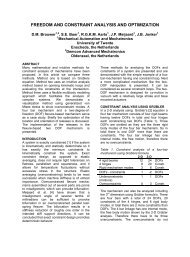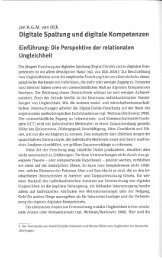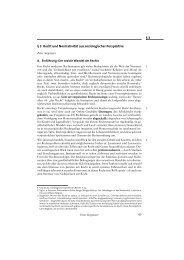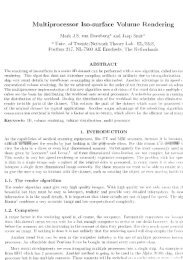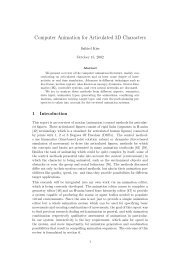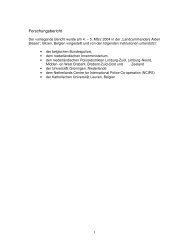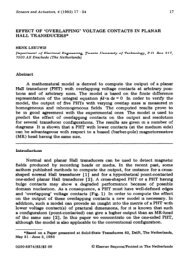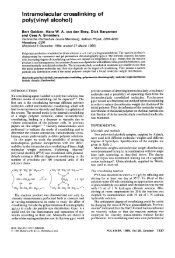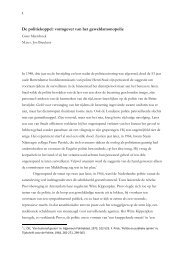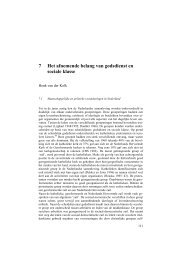Innovation and institutional change: the transition to a sustainable ...
Innovation and institutional change: the transition to a sustainable ...
Innovation and institutional change: the transition to a sustainable ...
You also want an ePaper? Increase the reach of your titles
YUMPU automatically turns print PDFs into web optimized ePapers that Google loves.
Evolution of decentral cogeneration in <strong>the</strong> Ne<strong>the</strong>rl<strong>and</strong>s 149<br />
Table 5.4: Total decentral cogeneration by sec<strong>to</strong>r (GWh)<br />
Waste<br />
incineration<br />
Energy<br />
distribu<strong>to</strong>rs<br />
Food<br />
industry<br />
Paper<br />
industry<br />
Chemical<br />
industry<br />
O<strong>the</strong>r<br />
ind.<br />
Horticulture <br />
Healthcare<br />
O<strong>the</strong>r Total<br />
1990 2618 192 1190 1261 5534 387 327 142 593 12244<br />
1991 2890 378 1166 1285 5735 381 389 169 294 12687<br />
1992 3096 674 1405 1289 6130 391 550 182 331 14048<br />
1993 3374 1595 1341 1363 6522 377 686 187 386 15831<br />
1994 3356 2342 1554 1477 7328 366 802 232 364 17821<br />
1995 3492 2802 1860 2127 8027 382 1014 279 380 20363<br />
1996 4064 4203 2677 2490 8341 481 1580 486 673 24995<br />
1997 4809 4753 2624 2542 8502 555 1666 525 719 26695<br />
Source: Central Agency for Statistics, The Dutch energy economy, 1990 - 1998, 1991 – 1999.<br />
Expansion of cogeneration created over capacity in <strong>the</strong> electricity system<br />
The increase in cogeneration <strong>and</strong> its preference over central generation (due<br />
<strong>to</strong> <strong>the</strong> obligation <strong>to</strong> purchase against fixed feed-in tariffs in <strong>the</strong> Electricity<br />
Act) led <strong>to</strong> a deteriorating market position of <strong>the</strong> central producers. The<br />
decrease in <strong>the</strong>ir market share forced producers <strong>to</strong> increase supply tariffs for<br />
distribu<strong>to</strong>rs, but in <strong>the</strong> fixed tariff structure this also triggered higher<br />
remuneration tariffs for cogeneration. This tariff structure locked-in<br />
investments in cogeneration <strong>and</strong> accelerated <strong>the</strong>ir expansion. Every increase<br />
in cogeneration decreased <strong>the</strong> market share of central production,<br />
consequently increasing <strong>the</strong> remuneration tariffs for decentral production,<br />
fur<strong>the</strong>r increasing attractiveness of investments in decentral cogeneration<br />
(ECN, 1995; Vlijm, 2002; Köper, 2003: 52). The increase in cogeneration<br />
contributed <strong>to</strong> over capacity in <strong>the</strong> Dutch electricity system <strong>and</strong> attacked <strong>the</strong><br />
system of central electricity planning by <strong>the</strong> SEP. Therefore, <strong>the</strong> SEP<br />
initiated a mora<strong>to</strong>rium on investments in cogeneration in 1994. SEP <strong>and</strong><br />
EnergieNed agreed <strong>to</strong> postpone or <strong>to</strong> cancel 29 about 460 MW planned<br />
decentral cogeneration capacity, financially compensated by SEP (40 mln.<br />
Euro). Industry strongly opposed <strong>the</strong> mora<strong>to</strong>rium as <strong>the</strong>y argued that<br />
ineffective planning of SEP had caused over capacity. Their viewpoint was<br />
that cogeneration contributed <strong>to</strong> <strong>the</strong> attainment of national environmental<br />
goals <strong>and</strong> SEP had not anticipated <strong>the</strong>se advantages in its electricity<br />
planning 30 . SEP, however, refused responsibility for over capacity because it<br />
could only count for real installed decentral installed capacity, <strong>and</strong> not for<br />
planned decentral capacity in <strong>the</strong> biannual electricity forecasts of dem<strong>and</strong><br />
29 The <strong>to</strong>tal reduction of planned capacity was estimated <strong>to</strong> amount 1.100 MW in <strong>the</strong> years <strong>to</strong><br />
follow (Press release SEP / EnergieNed 27-01-1995)<br />
30 Environmental goals not feasible without cogeneration (In Dutch), NCI: orgaan van de<br />
Vereniging van de Nederl<strong>and</strong>se Chemische Industrie, 1994, vol. 22: 4-5



